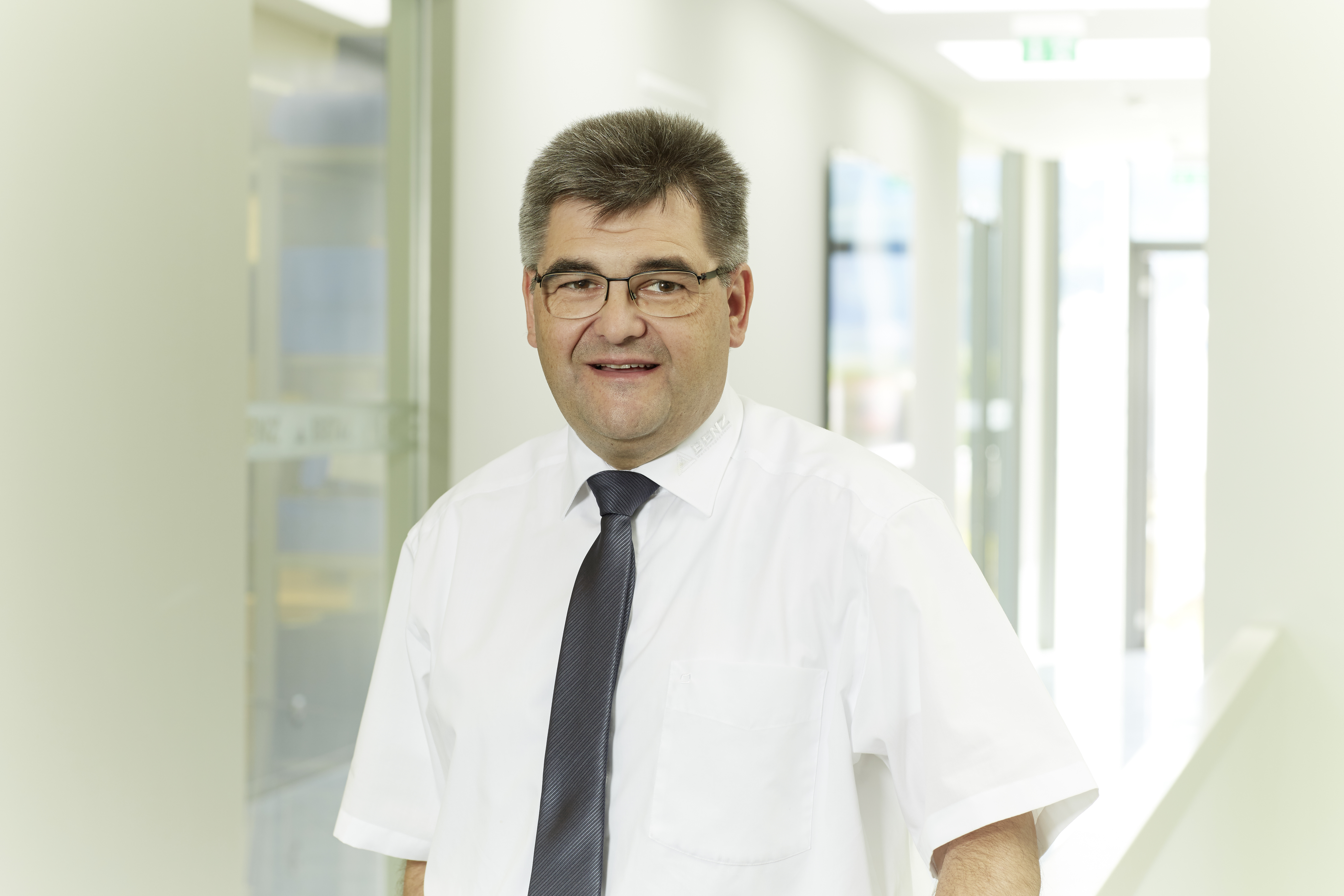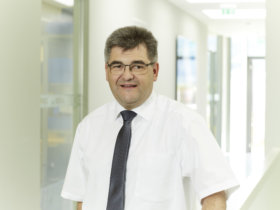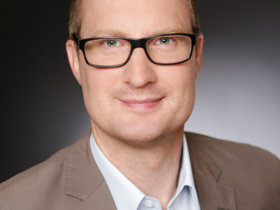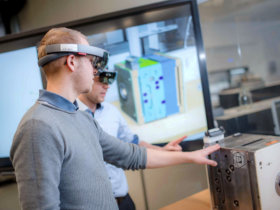Digital yet sustainable – How so?
Industrial processes can either be digital or sustainable – at least that is the belief of many who have not yet given the issues involved the consideration they deserve. But the VDMA Technology Forum at EMO Hannover will be proving the opposite: applied sensibly and judiciously, digitalisation can even increase sustainability. Four companies whose digital solutions are helping to make the production and use of tools more sustainable offer their insights.
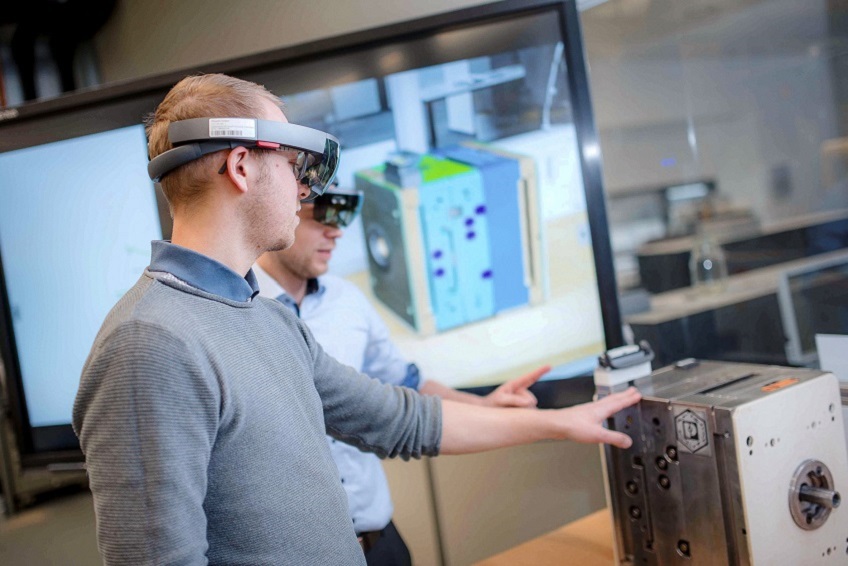
For Konrad Keck, Sales Manager DACH of Benz GmbH Werkzeugsysteme in Haslach (near Offenburg), Smart Service is the key to preparing services and products for Industry 4.0 (IoT-ready). For Benz, Smart Service represents an integrated service concept in which ever larger amounts of digital information (e.g. from sensors) are used for preventive service processing.
Energy harvesting supplies sensors with power
Sometimes the devil is in the technical detail: sensors often consume additional energy. Keck points out an alternative: “With rotating tools, the energy for the sensor system is obtained from energy harvesting, basically allowing battery solutions to be dispensed with.” Energy harvesting users “harvest” electrical energy from sources such as ambient temperature, vibrations or air currents to power mobile devices or low-power electronics.
However, the most sustainable aspect of “Smart Service” is that the tools last longer due to preventive maintenance intervals. In the future, when digitalisation renders products aware of their own condition, such parameters can be used as the basis for control loops that increase the service life of the tools. In Hanover, the Haslach-based company will be demonstrating how digitalisation can affect applications in daily practice in the form of its newly developed rotating tool magazine Benz Hybrix and the LinA broaching system which is now IoT-ready.
Daniel Meuris, Head of Digitalisation and Virtualisation at the machine tool manufacturer Klingelnberg GmbH, Hückeswagen, will be presenting the company’s GearEngine platform for gear production at EMO Hannover 2019. This serves as a central collection point for production data and an interface between the production department and the management. The platform facilitates the deployment of software-based data services for Klingelnberg machine tool operators.
Software tool raising tool efficiency
Meuris believes that tool efficiency is the key to sustainable machining. One example is bevel gear production in which it was not previously possible to assess efficiency levels due to the special tools involved and the lack of data. Klingelnberg’s new SmartTooling system can identify tools and fixtures for bevel gear milling machines using Data Matrix codes and manage them centrally in a database. Meuris: “The means of production are described to any required level of precision as digital twins in a central database. Production data is added to this database during and after the gear cutting.” Klingelnberg will be demonstrating how this works in practice in Hanover by showing actual operation on a machine.
Dr. Raphael Rohde from the Technology Development department of the Tools and Parts business unit of Blomberg-based Phoenix Contact GmbH & Co. KG will be explaining how production can be optimised using tool data at the Technology Forum of EMO Hannover. The connection and automation technology manufacturer networks its injection moulding tools with the aid of RFID-based data acquisition and optical markers. “All manufacturing and production information is available at all times,” Rohde explains. “The required data is made available to employees and individual users in the form of visualisation boards or through the use of augmented reality. This helps reduce any mistakes due to incorrect interpretation and keep consequential errors to a minimum, thus contributing to sustainability in production.”
Measurement technology supports digital transformation
The digitalisation of industry is bringing measurement technology ever closer to and into production, as Prof. Heiko Wenzel-Schinzer, Managing Director and Chief Digital Officer of Wenzel Group GmbH & Co. KG in Wiesthal has observed: “We can take more and faster measurements with optical solutions, 5-axis measuring heads and special measuring machines, and give direct feedback to the processing machines via closed control loops.” However, when measurement technology moves into production, it is crucial that it more or less eliminates downtimes. The measurement technology manufacturer offers additional solutions which are designed to detect and correct any problems on the machines at a very early stage. This extends the service life of the production equipment and makes it more sustainable.
Wenzel’s measuring machines are also designed for extremely long service lives. “We are deploying modern measuring technology that can repeatedly be modernised without the entire machine having to be replaced,” explains the managing director. “With process monitoring, the closed control loop between the measuring technology and the processing machines reduces the number of rejects, as we can provide feedback on any production problems at a very early stage.” On the Wenzel Group stand at the EMO Hannover the company will demonstrate the interaction between production and new measuring technology – from portable measuring arms through to high-speed scanning machines.
Those who are interested can find out more about digitalisation and sustainable production at the Technology Forum of the VDMA-High-Precision Tools and Metrological and Testing Technology trade associations on stand D39 in hall 4.
Author: Nikolaus Fecht, specialist journalist from Gelsenkirchen
Size: around 5,800 characters including blanks


